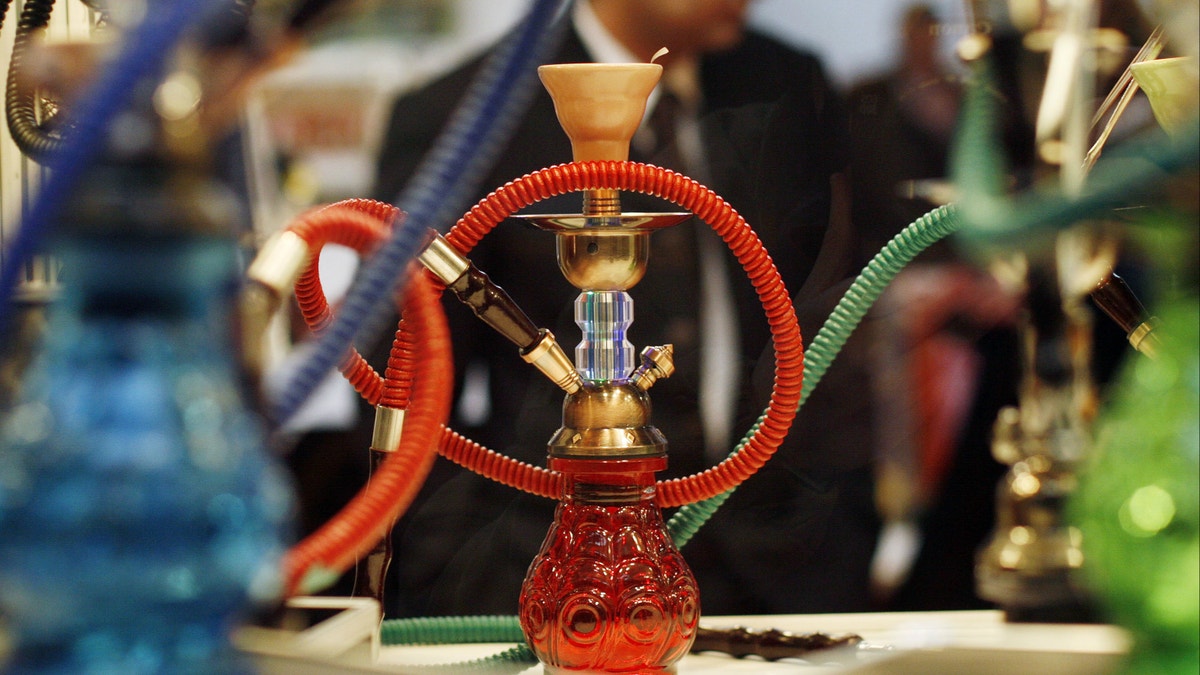
(REUTERS/Susana Vera)
Smoking hookah can be addictive and harmful, though many dabblers may not realize the dangers, according to a new review.
"The cooled and sweetened flavor of hookah tobacco makes it more enticing to kids and they falsely believe it's less harmful," Tracey E. Barnett from the University of Florida in Gainesville told Reuters Health.
Barnett has studied the recent rise in teen hookah smoking. She was not involved in the new review, published in Respiratory Medicine.
"One-time use can lead to carbon monoxide poisoning or other diseases, including but not limited to tuberculosis, herpes, respiratory illnesses including the flu, and long-term use can lead to heart disease and many cancers," Barnett said.
Smoking with a hookah, or "shisha," device has become increasingly common in Europe and the Western Hemisphere in recent years. The practice rose to prominence on the Indian subcontinent among Hindus in the 15th Century and subsequently spread through the Ottoman Empire. According to one estimate, about 100 million people worldwide smoke hookah each day.
Though the water-pipe device with its series of tubes and mouthpieces looks nothing like a cigarette, it is almost always used to smoke tobacco, and as such carries many of the dangers inherent in cigarette smoking.
"While water is a filter, it does not filter out any of the toxins," Barnett said.
The new review brings together the results of several studies on addiction, lung damage and health dangers associated with hookah smoking.
According to the World Health Organization, one hookah session typically lasts 20 to 80 minutes and a hookah user may inhale as much smoke during one session as a cigarette smoker would from smoking 100 or more cigarettes.
The review authors, led by Dr. Ruben Blachman-Braun of Universidad Anahuac in Huixquilucan, Mexico, cite another study which found nicotine levels in the urine of daily hookah smokers were equivalent to levels in people smoking 10 cigarettes per day, more than enough to spark addiction.
In the existing scientific literature, hookah has been linked with health problems including chronic bronchitis, lung cancer, oral cancer, prostate cancer, heart disease and pregnancy complications similar to those seen with cigarette smoking. It has also been tied to the hepatitis C virus and herpes from sharing mouthpieces.
In one 2013 study in Nicotine & Tobacco Research, researchers treated cells from the lining of human lungs with tobacco and non-tobacco smoke from a water pipe smoking machine. They found that smoke from a hookah pipe slows down and stunts lung production regardless of whether the smoke came from a tobacco or tobacco-free product.
People don't generally seem to understand just how dangerous hookah smoking can be, said Adrienne J. Heinz. She studies alcohol and drug use patterns at the Stanford University School of Medicine in California and was not involved in the new review.
"In casual conversations with friends and patients - folks often appreciate that smoking anything comes with risks," Heinz said. "However, hookah is certainly viewed as more benign, and when you share general facts about toxin exposure in one hookah session, it often shocks and surprises them."
Results of an online survey of more than 5,000 college students, also published in Nicotine & Tobacco Research in 2013, indicated that more than 10 percent of college students had recently smoked hookah, which was the most widely used of non-cigarette tobacco products.
A similar study using online questionnaires of college students found 13 percent of them tried hookah for the first time in one seven-month period, and those who had less apprehension about the dangers were more likely to try it.
It's easy to see why people might be surprised at the dangers of hookah, since there haven't been public health campaigns to raise awareness of hookah risks the way there have been campaigns about cigarette smoking, Heinz said.
"There is also the misconception that because hookah sessions tend to be less frequent than smoking a cigarette, and because hookah is smoked through a water chamber, that the practice is safer," she said.
Hookah is deemed more socially acceptable than other forms of smoking, Barnett said. But people should not think of hookah as a safe alternative to smoking cigarettes, she said.








































